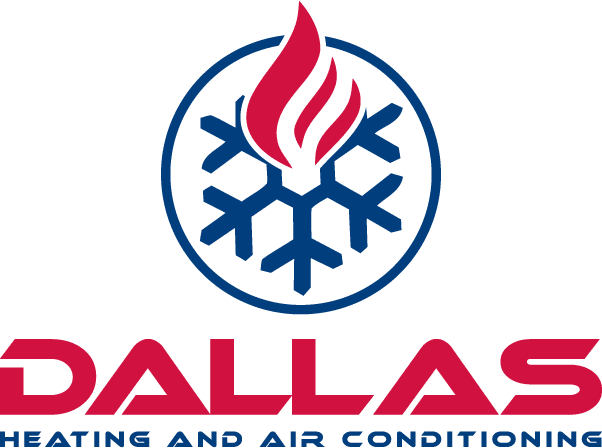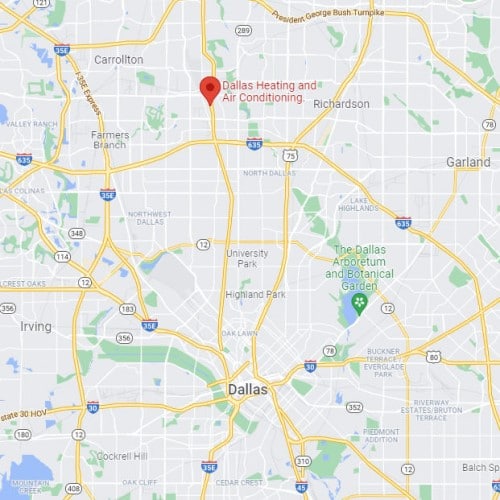When it comes to heating and cooling your home, comfort and efficiency are top priorities for most homeowners. However, traditional HVAC systems often struggle to deliver consistent temperatures throughout the entire living space, resulting in areas of the home that may feel too hot or too cold. To address this issue, zoning systems have been developed to provide more precise temperature control and ensure optimal comfort in every room.
In this blog, we'll explore the concept of HVAC zoning systems, how they work, and the benefits they provide for homeowners. With expert guidance from the professionals at Dallas Heating and Air Conditioning, you'll learn how to optimize your home's heating and cooling performance through the implementation of a zoning system.
Whether you're considering an HVAC upgrade or simply looking for ways to improve your existing system's performance, this informative guide will provide valuable insights into the world of HVAC zoning systems. So, let's dive into understanding zoning systems and learn how they can maximize comfort and efficiency in your home, with expert advice from the experienced team at Dallas Heating and Air Conditioning – your reliable AC repair company in Dallas.
What Is an HVAC Zoning System?
An HVAC zoning system is a method of dividing your home into separate areas, or "zones," each with individual temperature control. This is achieved through the use of dampers within your ductwork, which can open or close to regulate airflow and maintain the desired temperature within each zone. Homeowners can adjust the temperature settings for each zone using dedicated thermostats or a central control panel, ensuring consistent comfort throughout the entire living space.
The Benefits of a Zoning System
There are several key advantages to implementing an HVAC zoning system in your home:
1. Enhanced Comfort: By providing precise temperature control for each zone, HVAC zoning systems ensure that all areas of your home remain comfortable, eliminating hot or cold spots.
2. Energy Efficiency: Zoning systems can reduce energy consumption by only heating or cooling the areas in use, leading to lower utility bills and a smaller carbon footprint.
3. Individual Preferences: Zoning allows household members to tailor temperature settings to their personal preferences, creating a comfortable environment for everyone in the home.
4. Flexibility: Zoning systems can be retrofitted to existing HVAC systems or installed in new construction, making them a versatile solution for any home.
How to Implement an HVAC Zoning System in Your Home
If you're interested in adding an HVAC zoning system to your home, follow these steps to ensure a successful implementation:
1. Assess Your Home: Start by evaluating your home's layout and the specific comfort requirements for each area. Larger homes or those with multiple floors often benefit the most from zoning systems.
2. Consult with a Professional: Speak with a trusted HVAC professional, like the technicians at Dallas Heating and Air Conditioning, to determine the best zoning solution for your home and to ensure proper installation.
3. Choose a Control System: Select a control method for your zoning system, whether it's individual thermostats for each zone or a centralized control panel. Some zoning systems also offer smart thermostat integration for added convenience and control.
4. Monitor and Adjust as Necessary: Once your zoning system is installed, monitor the temperature settings and comfort levels in each zone and make adjustments as needed to optimize your home's HVAC performance.
Maintenance and Troubleshooting
To keep your HVAC zoning system functioning optimally, it's important to perform regular maintenance on your entire HVAC system, including the dampers and control equipment involved in your zoning solution. Schedule routine inspections and tune-ups with a professional HVAC technician, such as the team at Dallas Heating and Air Conditioning, to ensure your system continues to deliver consistent comfort and efficiency.
If you experience issues with your zoning system, consult your HVAC professional for guidance on troubleshooting and repairs. Common issues may include stuck dampers, malfunctioning thermostats, or imbalanced airflow. It's essential to address these issues promptly to maintain optimal comfort and energy efficiency in your home.
Conclusion
By understanding the concept of HVAC zoning systems and the benefits they provide, homeowners can make informed decisions about their home's heating and cooling performance. Implementing a zoning system can vastly improve your home's comfort and energy efficiency, ensuring that everyone in the household enjoys a personalized and consistent temperature environment.
For expert advice on HVAC zoning systems and all your heating and cooling needs, trust the experienced team at Dallas Heating and Air Conditioning. Our skilled technicians are dedicated to helping you make the most of your HVAC system, providing professional heat and airconditioning repair, installation, and maintenance ervices tailored to your unique home requirements.



